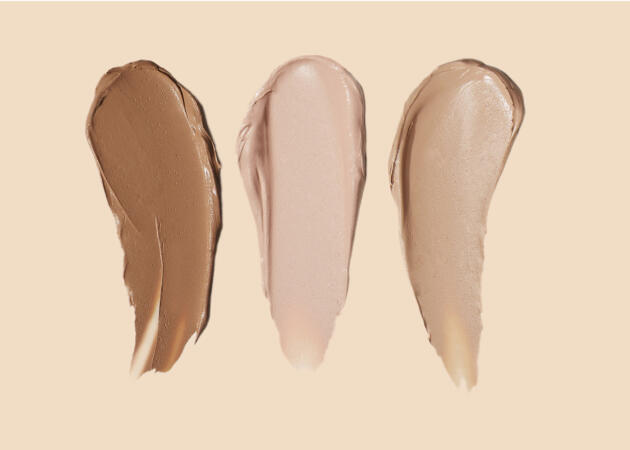If you have any digital adjacency to TikTok‘s beauty space, you have likely seen some of the hoopla surrounding Youthforia’s new foundation. For those not caught up, the brand made initial waves with the release of their “safe to sleep in” skin tint. Now, if you know anything about skincare, one of the cardinal rules is to never go to bed with makeup on. But composed of 68% skincare actives, this skin tint had many makeup aficionados rethinking everything. Unfortunately, though, the brand is now going viral for less savory reasons after a dark-skinned beauty influencer shared that she was gifted the darkest shade of the skin tint, and it was woefully under-pigmented for her complexion.
TikTok user Golloria, who is Black, shared a video of herself trying on the foundation, which was visibly lighter than what was shown on the box and online. When applied to her skin, the foundation appeared too light to even serve as a brightening concealer, much less a full-face product.
Another Black beauty influencer Christina Abiola called out the brand for offering a limited amount of shades in 2023.
“You already created the product,” Abiola said in her video. “You knew exactly who you were selling it to. And then, once people actually spoke up and realized, ‘This product wasn’t made for me,’ and they came out and spoke about it, [Youthforia’s] first response was to make excuses and not even acknowledge anything that we said.”
The lack of shade inclusion in the beauty space has been a hot topic for years, and Golloria’s platform is largely centered on testing out various brands to see if they hit the mark with their deeper shades. Golloria’s Youthforia video, which received over 160,000 likes, garnered a host of comments ranging from claims that this must be a packaging error to questions of the legal standings of what some are declaring deliberate false advertising.
But perhaps the most notable of all the reactions came from the brand’s founder, Fiona Co Chan.
In her video, a response to Golloria’s and others like it, she said she planned on expanding the brand’s shade range later on and that the initial release was just a “proof of concept.” Of course, as many pointed out, this implies that darker skin types were an afterthought for the brand, and as many viewers shared, this prioritization of fairer skin tones displays an apparent bias that alienates a darker clientele.
She eventually made a follow-up video, apologizing for the initial response, and explaining that the brand does have darker shades in the works.
Still, this second video also fell flat amongst viewers, with many comparing it to the Tarte debacle that happened earlier this year.
Much can be said about Chan’s decision to add darker shades later on, but it has been made abundantly clear that Black people were not in mind for this WOC-owned business, which reminds us of the importance of distinguishing between the two terms.
Ultimately, these exclusionary tactics have become so commonplace in the beauty industry that it’s hardly surprising, and the rehearsed apology videos are wholly unoriginal in a way that negates any actual points being made. People want action, not lip service and TikTok videos or notes app apologies are not going to cut it. You cannot segment an entire group from your product and be surprised when it bodes less than favorably for you. There are far too many examples of this happening, and at this point, it is beyond tired.

